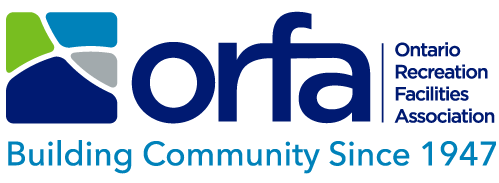- ORFA Home
- Events
- Course Descriptions
- Building Management and Operations
Building Management and Operations
The Building Management and Operations course is an accumulation of 40 plus years of practical experiences that reflect key and core regulated responsibilities or past industry challenges that continue to be an issue while managing recreation buildings. The course objective is to instill in the participant an overview of known recreation facility workplace obligations, best practices and industry related issues that may be encountered in their work environment. The materials are offered as a stimulant to life-long learning. Participant commitment to applying the information will dictate their success within the industry.
This course takes the practitioner to a higher level of learning. Accomplished through a broader understanding of managerial operating best practices and how to engage operational teams through the development, implementation and ongoing management of operational tools such as policy, procedures, logbooks, checklists, and time dated maintenance plans.
The course will provide a framework for all levels of recreation staff who have managerial responsibilities in maintaining facility operations while challenging the participant to be open minded in continually exploring new techniques and technologies associated with effective facility management.
Topics include:
- Building design and construction principles – an understanding of infrastructure builds and the associated challenges.
- Fiscal management – collection of taxes and tariffs, calculating user fee principles, and managing operational expenses effectively.
- Consumption controls – serving of food and alcohol responsibilities while managing tobacco and cannabis.
- Contract management principles – understanding the importance and role of facility contractual relationships.
- Building maintenance management – exploring the importance of designing effective maintenance plans for user safety and maximum life cycle.
- Human resource management – applying the Employment Standards Act while balancing union relationships.
- Health & safety management – creating a positive health and safety culture and compliance plan.
- Building housekeeping management – keeping recreation facilities safe through cleanliness, sanitization and disinfection.
- Fleet management – ensuring that workers who have access to any equipment that moves requires proper training.
- Technology management – phones, computers and security cameras all require policy and procedures to ensure proper use while avoiding time theft.
- Hazardous waste management – recreation facilities are considered waste generators under Reg. 347 and as such must be managed accordingly.
- Building supervisor management – we explore who is in charge when the manager is not present and what training should these individuals have.
- Policy and procedures management – the importance of creating, maintaining and managing the use by all stakeholders is discussed.
- Service contractor management – understanding the responsibilities associated with service contractors who perform work in a recreational environment.
- Recordkeeping management – knowing what logbooks are regulated and what are internal management tools and the importance of training all staff to properly use them is focused on.
- Accessibility management – facility managers must understand accessibility laws and comply with training requirements, building design and emergency preparedness to ensure persons with disabilities are evacuated.
- Emergency preparedness management – ensuring all equipment is properly maintained and response plans are in place and practiced is a regulated responsibility. The issue of homeless person use of recreational spaces is also discussed.
- Risk and asset management – best practices are critical focus points of todays facility manager.
- Building management solutions – the course ends with an overview of proven tactical applications to meeting all information shared in the course. Attainable short and long term goals that can be obtained with little financial investment is explained.
This course is worth 28 professional development credits towards recertification of any ORFA professional designation.
Upcoming events
|
